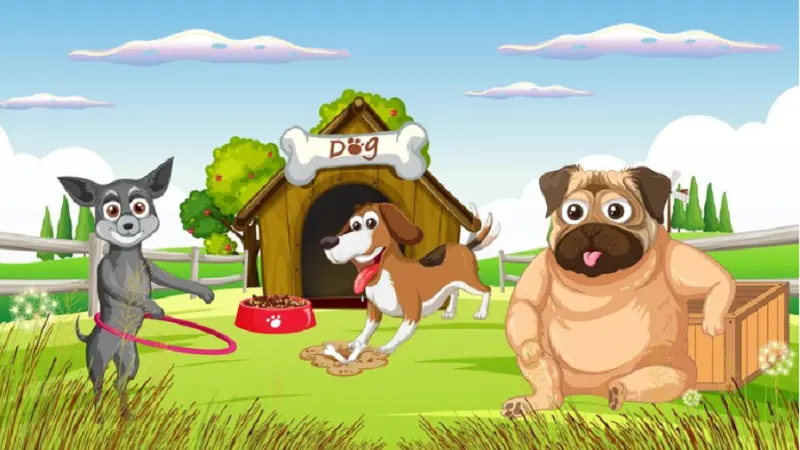When it comes to the natural world, few topics provoke as much curiosity and discomfort as poop. Despite its unpleasant nature, poop plays a crucial role in the ecosystems, animal behavior, and even human health. In this article, we delve into the intriguing aspects of poop, exploring its significance, uses, and cultural impact. Whether it’s the role of poop in nature, its applications in science, or its place in our daily lives, this exploration will shed light on a topic often left in the shadows. real:t0oxkqspfj8= poop
Table of Contents
ToggleThe Science of Poop
What is Poop?
Poop, scientifically known as feces, is the waste product of the digestive process. It is composed of undigested food particles, bacteria, cells from the lining of the intestines, and water. The composition of poop varies depending on an individual’s diet, hydration, and health. Understanding the science behind poop can provide insights into an individual’s digestive health and overall well-being.
The Digestive Process
The journey of food through the digestive system is a complex process involving several organs. It begins in the mouth, where food is broken down by chewing and saliva. The food then travels down the esophagus to the stomach, where it is mixed with digestive juices to break it down further. The small intestine absorbs nutrients, and the remaining waste moves into the large intestine. Here, water is absorbed, and the waste is compacted into feces, eventually being expelled from the body. real:t0oxkqspfj8= poop
The Role of Bacteria
Bacteria play a vital role in the digestive process and the formation of poop. The human gut is home to trillions of bacteria, known as the gut microbiome. These bacteria help break down food, produce essential vitamins, and protect against harmful pathogens. The composition of the gut microbiome can influence the texture, smell, and frequency of poop.
The Ecological Significance of Poop
Nutrient Recycling
Poop plays a crucial role in nutrient recycling within ecosystems. When animals defecate, they release essential nutrients back into the soil, promoting plant growth. This process is particularly important in ecosystems like forests and grasslands, where the decomposition of organic matter is vital for maintaining soil fertility. The nutrients from animal poop are absorbed by plants, which are then consumed by herbivores, continuing the cycle of life.
Seed Dispersal
Many animals, particularly birds and mammals, contribute to seed dispersal through their poop. After consuming fruits and other plant materials, seeds pass through the digestive tract and are excreted in a new location. This process helps plants colonize new areas and maintain genetic diversity. Some plants have evolved to rely on this method of seed dispersal, producing fruits that attract animals to aid in their distribution.
Habitat Creation
In some cases, poop can create habitats for other organisms. For example, dung beetles rely on animal feces as a food source and breeding ground. These beetles play a crucial role in breaking down and recycling nutrients, contributing to soil health. Additionally, certain birds, such as swifts, use poop to build their nests, creating a safe environment for their offspring. real:t0oxkqspfj8= poop
The Cultural Impact of Poop
Historical Uses
Throughout history, humans have found various uses for poop. In ancient civilizations, animal feces were used as a fertilizer to enhance crop yields. The practice of using manure as fertilizer continues today, with many farmers relying on animal waste to enrich their soil. In some cultures, dried animal dung has been used as a fuel source for cooking and heating.
Poop in Medicine
In recent years, poop has gained attention in the medical field for its potential health benefits. Fecal microbiota transplantation (FMT) is a procedure where fecal matter from a healthy donor is transplanted into the intestines of a patient. This treatment has shown promise in treating conditions such as Clostridium difficile infection and inflammatory bowel disease by restoring a healthy balance of gut bacteria.
Poop in Popular Culture
Poop has also made its way into popular culture, often serving as a source of humor and entertainment. From children’s books like “Everyone Poops” to comedic sketches and memes, poop is a topic that resonates with people of all ages. Its ubiquity in popular culture reflects a shared human experience and the ability to find humor in the mundane aspects of life. real:t0oxkqspfj8= poop
Innovative Uses of Poop
Renewable Energy
Poop is emerging as a valuable resource for renewable energy production. Biogas, a mixture of methane and carbon dioxide produced from the anaerobic digestion of organic matter, can be generated from animal and human waste. This biogas can be used to generate electricity, heat, and fuel, providing a sustainable energy source that reduces reliance on fossil fuels. real:t0oxkqspfj8= poop
Water Purification
In some regions, poop is being used to purify water. Researchers have developed systems that use bacteria found in feces to break down pollutants in wastewater. These systems are cost-effective and environmentally friendly, offering a sustainable solution to water purification in areas with limited access to clean water.
Building Materials
In an innovative twist, poop is being used to create eco-friendly building materials. Researchers have developed bricks made from a combination of human waste and traditional materials like clay. These bricks are durable, sustainable, and reduce the environmental impact of construction. This approach not only addresses waste management issues but also contributes to sustainable building practices.
Conclusion
Despite its often-taboo nature, poop is a fascinating subject with significant ecological, cultural, and scientific implications. From its role in nutrient recycling and seed dispersal to its applications in medicine and renewable energy, poop is a valuable resource that deserves recognition. By understanding and embracing the importance of poop, we can appreciate its contributions to the natural world and explore innovative ways to harness its potential for a sustainable future. real:t0oxkqspfj8= poop

